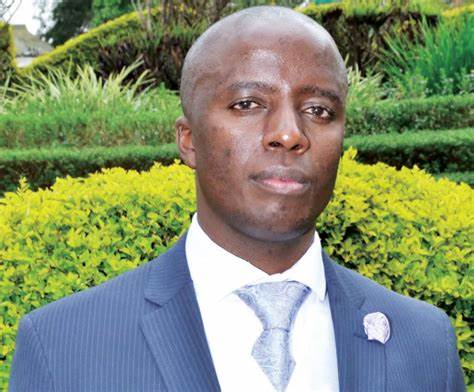Brian Banda is a man with unresolved scores. A man who lets grudges take over his reasoning faculties. Actually, it is an insult and painful to the noble discipline of journalism to call Brian Brian a journalist.
Once lauded as a promising media figure with access to the corridors of power, Banda has since become a symbol of what many fear journalism could devolve into: a platform not for truth, but for revenge, disinformation, misinformation, personal interest and used as a weapon to settle personal grudges and vendetta.

Once stationed at the very apex of Malawi’s communications machinery as Presidential Press Secretary for the then President Joyce Banda, Brian had the rare privilege to serve and speak for the Head of State. But with proximity to power came temptation. It is widely reported, and rarely denied, that Brian used his influence to solicit bribes from businesspeople, many of whom were of Asian descent, in exchange for promises of facilitating access to the President.
These allegations have not been mere whispers in the wind. When the State House could no longer turn a blind eye, action was taken, and Brian was promptly dismissed.
Rather than accepting responsibility for his actions, Banda chose to cast himself as a victim of political conspiracy. He blamed senior State House officials and others in the administration for orchestrating his downfall. Yet, nowhere in his lament did he acknowledge the serious ethical breaches that led to his removal. This lack of introspection continues to define his approach to journalism today.
After a quiet exit from the State House, Banda found his way to Times Group, where he launched his show — “Hot Current.”
Stories have it that when President Lazarus McCarthy Chakwera came into power, Brian squeezed his way back to State House.
It is said that as soon as the 2020 election results were announced he moved to the Capital City, booked himself at Capital Hotel. The following day he was on his way to President Chakwera’s Area 6 private residence presenting himself as the Press Secretary to the President-elect.
He was taken in but this time he wasn’t that lucky. He was booted out unceremoniously. Reasons: Brian went back to his ways and continued where he stopped during Joyce Banda’s time.
Feeling dejected, he went back to Blantyre. This time with scores against the new administration.
He went back to his former employer and entrusted to bring back the old glory of the “Hot Current”.
However, Brian saw the opportunity to hit back. He immediately turned the once beloved show into a weapon. The show has since lost the objectivity it once aimed to uphold. In its place, it has become a megaphone for Brian Banda’s personal vendettas, political grudges, and pecuniary interests.
He has repurposed journalism into a theatre of resentment, especially directed at the current administration.

His recent interview with Malawi Electoral Commission’s Director of Media and Communications, Sangwani Mwafulirwa, on the use of Smartmatic electoral technology, was a textbook example of Brian’s misdirected energy.
Instead of a fair inquiry, he launched into a biased interrogation, repeatedly raising issues already clarified in other forums. His insistence on discredited narratives around Smartmatic’s use in countries like Indonesia and Mozambique seemed less about seeking the truth and more about sowing doubt and confusion.
It was clear to many viewers that Banda came ill-prepared, his questions underpinned not by research but by a predetermined agenda. Mwafulirwa, calm and composed, responded with facts and clarity. The contrast couldn’t have been starker: a professional trying to inform the nation, and a journalist struggling to contain his indignation when his narrative unraveled on live television.
This isn’t the first time Brian has let emotions cloud professionalism. In past interviews, he’s been combative, dismissive, and even disrespectful — notably once reducing a guest, Kenneth Msonda, to insults when he failed to dominate the conversation. This pattern reveals a deeper issue: Brian is no longer interested in truth or balance; he is chasing vindication.
A concerning trend in Brian’s programming is his guest selection.
His show has become a revolving door for individuals who either support his personal crusades or have the financial power to influence narrative. Certain ‘prophets,’ business magnates, and political figures — notably UTM’s Dalitso Kabambe — have become near-permanent fixtures on his platform. One wonders if the platform is editorially managed at all, or whether Brian runs a personal fiefdom within the Times Group.
It is unfortunate, if not dangerous, that Times Group continues to turn a blind eye to these excesses. While Brian might draw ratings, the long-term cost is credibility. When a media house enables such behavior under the guise of press freedom, it betrays its own ethical obligations to the public.
Malawi deserves a media that is fearless yet fair, investigative yet impartial, and passionate yet principled. Brian, in his current form, represents the opposite. His microphone has become a sword, not for justice, but for vengeance. And in doing so, he soils not only his own name but the reputation of the institution that hosts him.
If we are to rebuild trust in journalism, we must begin by holding even the most charismatic figures accountable — especially when they use the power of media to settle personal scores, not serve the public.








